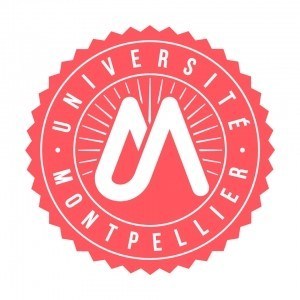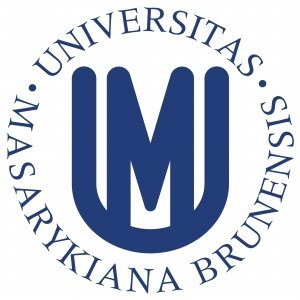The BSc Chemistry program at Queen's University Belfast offers students a comprehensive and rigorous education in the fundamental principles and advanced topics of chemistry. Designed to prepare graduates for diverse careers in scientific research, industry, education, and beyond, this program combines theoretical knowledge with practical laboratory skills. Students will explore various branches of chemistry, including organic, inorganic, physical, and analytical chemistry, developing a strong understanding of chemical concepts and their applications in real-world contexts. The curriculum emphasizes experimental techniques, data analysis, and critical thinking, preparing students to tackle complex scientific challenges. Throughout the course, students have access to state-of-the-art laboratories and research facilities, enabling hands-on experience with modern instrumentation and methodologies. The program also encourages engagement with current scientific literature and research trends, fostering an innovative mindset and lifelong learning attitude. Additionally, students can participate in research projects, internships, and collaborative activities with academic staff and industry partners, enhancing their practical skills and professional readiness. The BSc Chemistry degree at Queen's University Belfast is designed to be flexible, allowing students to tailor their studies through elective modules and specializations aligned with their interests and career ambitions. Graduates of this program are well-equipped to pursue careers in pharmaceuticals, environmental science, materials development, education, or continue their studies at postgraduate level. The program aims to inspire curiosity, analytical ability, and scientific integrity, aspiring to develop not just chemists, but also innovators and problem-solvers in the global scientific community.
The BSc (Hons) in Chemistry and Chemical Engineering at Queen’s University Belfast offers students a comprehensive curriculum designed to equip them with a deep understanding of chemical principles and engineering practices. The programme combines core modules in organic, inorganic, and physical chemistry with foundational courses in chemical engineering principles, providing a multidisciplinary approach to the field. Throughout the course, students will explore topics such as thermodynamics, kinetic processes, material science, and process design, preparing them for roles in industries such as pharmaceuticals, energy, manufacturing, and environmental protection. The curriculum is carefully structured to include laboratory work, enabling students to develop practical skills and experimental techniques essential for professional competence. Additionally, the programme emphasizes the importance of safety, sustainability, and innovation in chemical processes, aligning with modern industry demands. Students will also have opportunities to engage in project work, which fosters problem-solving skills and teamwork. The programme benefits from state-of-the-art laboratories and facilities, offering hands-on experience with cutting-edge technology. Throughout their studies, students are supported by dedicated academic staff with expertise across chemistry and engineering disciplines. The course aims to produce graduates who are not only knowledgeable in chemical sciences but also possess strong analytical, communication, and problem-solving abilities. The programme is accredited by relevant professional bodies, enhancing graduate employability and providing pathways to further study or careers in research, development, and technical roles within the chemical industry and beyond. Graduates will be well-prepared to contribute to innovative solutions in science and engineering, addressing global challenges such as sustainability, health, and environmental management. The flexible structure of the programme allows students to tailor their studies through optional modules, providing a personalized educational experience aligned with their career aspirations.
A minimum of 120 credits must be completed to qualify for the integrated Master’s degree in Chemistry and Chemical Engineering at Queen's University Belfast. The programme typically spans four years of full-time study, with the first two years focusing on foundational knowledge in chemistry, chemical engineering principles, and scientific methods. Students are required to undertake core modules such as Principles of Chemistry, Chemical Process Principles, Laboratory Techniques, Mathematics for Scientists, and Physics for Engineers. In addition to mandatory modules, students have options to choose elective courses to tailor their learning experience to specific interests within chemistry and chemical engineering.
In the third year, students advance to more specialised modules including Chemical Reaction Engineering, Thermodynamics, Analytical Chemistry, Materials Science, and Process Control. Practical laboratory work continues to be an important component, emphasizing experimental techniques, data analysis, and safety procedures. Students undertake individual and group projects to develop research skills, critical thinking, and problem-solving abilities. This year often includes a work placement or industrial experience component, offering real-world exposure to chemical plants or research laboratories.
Year four serves as the final stage of the programme, where students undertake advanced modules such as Sustainable Chemical Processes, Advanced Reaction Engineering, and Process Design. The year culminates in a substantial research project or dissertation, typically supervised by academic staff, requiring students to apply their knowledge to solve a complex chemical engineering problem or conduct original research. Assessment throughout the programme comprises examinations, coursework, laboratory reports, presentations, and project work.
To graduate with the degree, students must attain a passing grade in all core modules, complete the research project successfully, and fulfill the minimum attendance and participation requirements set by the university. The programme aims to equip graduates with a comprehensive understanding of chemical principles combined with engineering applications, preparing them for careers in industries such as pharmaceuticals, energy, environmental management, and materials development.
Want to improve your English level for admission?
Prepare for the program requirements with English Online by the British Council.
- ✔️ Flexible study schedule
- ✔️ Experienced teachers
- ✔️ Certificate upon completion
📘 Recommended for students with an IELTS level of 6.0 or below.
The BSc Chemistry programme at Queen's University Belfast offers a range of financing options to support students throughout their studies. Tuition fees for UK and Irish students are set annually by the university and are subject to government regulations. International students are also welcomed, with fee levels established accordingly. Students are encouraged to explore various funding sources, including government-funded grants, scholarships, and bursaries offered by Queen's University Belfast. The university provides several scholarships specifically aimed at students pursuing degrees in science and chemistry, which are awarded based on academic merit and other criteria. Additionally, students may be eligible for external funding opportunities, such as national or regional scholarships provided by organizations supporting STEM education.
Students can also consider student loans available through the UK government, which cover tuition fees and living expenses. The Student Loans Company manages these arrangements, offering repayment plans based on income after graduation. Queen's University Belfast offers flexible arrangements such as part-time work within the campus, which can help students earn income while studying. The university’s Careers Service provides guidance on employment opportunities, internships, and part-time work to supplement student income.
Furthermore, there are specific bursaries and grants for students demonstrating financial need or coming from underrepresented backgrounds. International students often participate in the university’s scholarship programmes, which reduce tuition costs or provide living stipends. The university encourages early application for funding to ensure eligibility and maximize available financial support.
Students are advised to consult the university’s official website and financial aid office for the most current information on available funding, application procedures, deadlines, and eligibility criteria. Overall, the programme’s financing opportunities are designed to make the BSc Chemistry degree accessible and affordable, supporting students in their academic and professional development.
The Bachelor of Science (BSc) in Chemistry and Chemical Engineering at Queen's University Belfast offers students a comprehensive education that combines fundamental principles of chemistry with practical and theoretical aspects of chemical engineering. The programme is designed to prepare students for diverse careers within the chemical sciences, including industries such as pharmaceuticals, energy, environmental protection, and materials development. Throughout the course, students gain a deep understanding of chemical reactions, process engineering, and laboratory techniques, equipping them with essential skills for research and development, manufacturing, and technical consultancy roles. The curriculum typically includes core modules on organic, inorganic, physical, and analytical chemistry, alongside modules focused on chemical process engineering, safety, sustainability, and innovation. Practical laboratory sessions are an integral part of the programme, allowing students to develop hands-on skills in chemical analysis, instrumentation, and process design. Queen’s University Belfast emphasizes research-led teaching, often involving students in cutting-edge research projects under faculty supervision. The programme also provides opportunities for industrial placements, internships, and collaborative projects with industry partners, enriching the student experience and enhancing employability. Graduates of the programme are well-equipped to pursue advanced study in chemistry or chemical engineering, or to enter professional roles within various sectors including research, manufacturing, environmental management, and regulatory agencies. The university’s strong links with industry, alongside dedicated career services, support students in finding relevant employment or postgraduate study opportunities after graduation. The programme is accredited by professional bodies such as the Institute of Chemical Engineers (IChemE) and the Royal Society of Chemistry (RSC), ensuring that graduates meet industry and academic standards. Overall, the BSc in Chemistry and Chemical Engineering at Queen’s University Belfast offers a balanced combination of academic rigour, practical skills, and industry experience, preparing graduates for success in a dynamic and evolving field.











